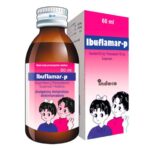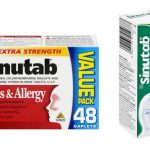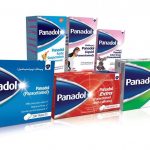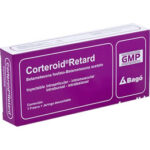Fenadol Tablet: Uses, Dosage, Side Effects, Interaction, Warnings
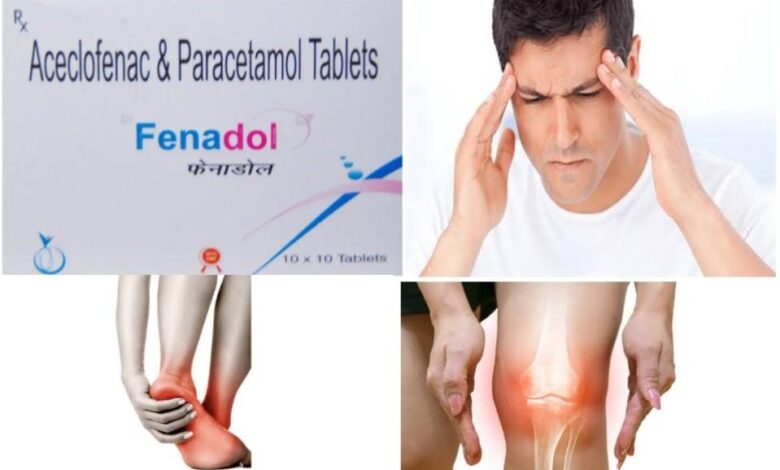
Fenadol Tablet is a combination medicine containing Aceclofenac (100mg) + Paracetamol (325mg) as active ingredients. Aceclofenac is a nonsteroidal anti-inflammatory drug (NSAID). Aceclofenac is used for the treatment of pain and inflammation in osteoarthritis, rheumatoid arthritis, and ankylosing spondylitis. This drug works by blocking the effect of cyclooxygenase (COX) enzymes that make chemical prostaglandins at sites of injury or injury causing pain, swelling, and inflammation.
Paracetamol, also known as acetaminophen, is a medication used to treat mild to moderate pain, to treat moderate to severe pain in conjunction with opiates, or reduce fever. Common conditions treated include headache, muscle aches, arthritis, backache, toothache, sore throat, colds, flu, and fevers.
The combination of Aceclofenac (100mg) + Paracetamol (325mg) in Fenadol Tablet makes the medication a potent analgesic for the management of pain, inflammation, fever, and swelling in various forms of arthritis. It is also useful in gynecological pain, dental pain, low backache, pain, and swelling in the ear, nose, and throat.
Warnings
Fenadol Tablet contains paracetamol, you should not use this medication if you have severe liver disease.
An overdose of paracetamol can damage your liver or cause death.
Adults and teenagers who weigh at least 110 pounds should not take more than 1000 milligrams (mg) at one time, or more than 4000 mg in 24 hours.
Children younger than 12 years old should not take more than 5 doses in 24 hours, using only the number of milligrams per dose that is recommended for the child’s weight and age. Use exactly as directed on the label.
Avoid also using other medicines that contain paracetamol (acetaminophen) (sometimes abbreviated as APAP), or you could have a fatal overdose.
Call your doctor at once if you have nausea, pain in your upper stomach, itching, loss of appetite, dark urine, clay-colored stools, or jaundice (yellowing of your skin or eyes).
Stop taking this medicine and call your doctor right away if you have skin redness or a rash that spreads and causes blistering and peeling.
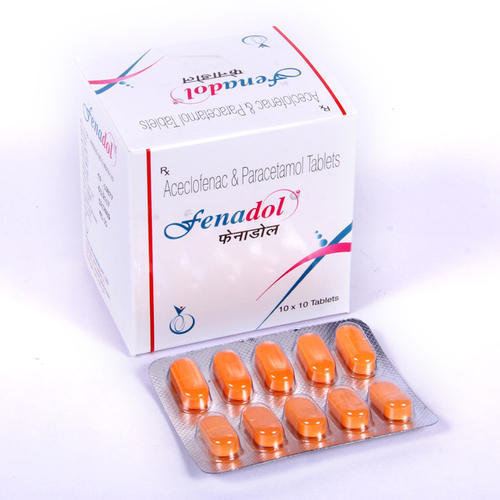
How should I take Fenadol Tablets?
The dosage of Fenadol Tablet is to be decided by the doctor for every individual as per the age, weight, mental status, allergic history of the patient.
The common Adult dose of Fenadol Tablet is a single tablet once or twice a day with an interval of at least 4-6 hours between two doses. It is not recommended to be administered to children without pediatric consultation and dose alteration should be avoided without proper medical consultation.
What are the side-effects of Fenadol Tablets?
The side effects associated with Fenadol Tablet are:
- Nausea
- Vomiting
- Abdominal pain
- Toxic epidermal necrolysis
- Diarrhoea
- Dizziness
- Indigestion
- Flatulence
- Constipation
- Loss of appetite
- Liver toxicity
What other drugs interact with Fenadol Tablet?
If your doctor has directed you to use this medication, your doctor or pharmacist may already be aware of any possible drug interactions and may be monitoring you for them. Do not start, stop, or change the dosage of any medicine before checking with your doctor, health care provider, or pharmacist first.
There are no severe interactions with acetaminophen and other drugs.
There are no serious interactions with Fenadol Tablets and other drugs.
Moderate Interactions of Fenadol Tablets include:
- axitinib
- busulfan
- daclizumab
- dapsone topical
- eltrombopag
- exenatide injectable solution
- exenatide injectable suspension
- flibanserin
- imatinib
- isoniazid
- ivacaftor
- lixisenatide
- lomitapide
- mipomersen
- tetracaine
- warfarin
Fenadol Tablets have mild interactions with at least 55 different drugs.
This document does not contain all possible interactions. Therefore, before using this product, tell your doctor or pharmacist of all the products you use. Keep a list of all your medications with you, and share the list with your doctor and pharmacist. Check with your physician if you have health questions or concerns.

